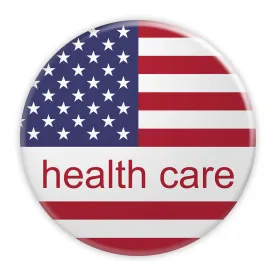On January 14, 2021, the U.S. Department of Justice (DOJ) reported its False Claims Act (FCA) statistics for fiscal year (FY) 2020. More than $2.2 billion was recovered from both settlements and judgments in 2020, the lowest level since 2008 and almost $1 billion less than was recovered in 2019. The total recoveries in 2020 reflect the first of many anticipated resolutions of fraud enforcement actions in the COVID-19 world, and over 80% of all recoveries—amounting to almost $1.9 billion—came from the health care and life sciences industries.
Highest Number of New Filings Ever Reported
Significantly, 2020 saw the largest number of new FCA matters initiated in a single year. The government initiated new FCA matters at its highest rate since 1994, with 250 new cases brought in 2020. Strikingly, the number of government-initiated cases against health care entities more than doubled from 2019 to 2020 and was at the highest level ever reported. Likewise, qui tam relators filed 672 new matters in FY 2020, an increase over FY 2019 and the fifth highest number of cases in reported history. Qui tam relators filed, on average, almost 13 new cases a week. Of the 672 qui tam cases filed, 68% were related to health care.
Qui Tam Filings Continue to be the Driver
Total recoveries from qui tam-initiated actions generated almost $1.7 billion. While the largest recoveries continue to come from cases where the government intervenes, cases pursued by relators post-declination generated more than $193 million in FY 2020, the fifth largest annual recovery in non-intervened cases since 1986. These cases continue to be rewarding for relators; over $309 million in relators’ share awards were paid in FY 2020, of which more than $261 million were paid in cases pursued against health care entities.
Areas of Focus
Health care-related recoveries in 2020 focused on cases pursued against drug and medical device manufacturers, managed care providers, hospitals, pharmacies, hospice organizations, laboratories, and physicians. As has been the case in previous years, the most significant recoveries came from the pharmaceutical industry and involved allegations of improper patient co-pay amounts and illegal kickbacks. This includes recoveries related to the ongoing opioid crisis, which continues to be a point of emphasis for DOJ enforcement actions.
FY 2020 recoveries also included cases alleging electronic health records fraud, violations of the Stark Law and the Anti-Kickback Statute, as well as cases concerning medical necessity and upcoding.
Key Takeaways
Despite the total amount of recoveries decreasing in 2020 as compared to previous years, the number of new matters being filed and pursued by both the government and qui tam relators increased. Consistent with years past, the health care and life sciences industries continued to predominate new FCA matters, whether initiated by the government or qui tam relators. Recoveries are overwhelmingly generated from cases initiated by qui tam relators, who range from current and former employees to business associates to competitors. While relators are no doubt incentivized by the substantial rewards they stand to recover for their efforts in pursuing FCA actions, robust compliance efforts still remain the best first line of defense. Even so, the need to defend against these claims either already is—or may ultimately become—a reality for entities and individuals in this space, particularly as COVID-19-related enforcement actions ramp up.
With the advent of a new administration, a single political party in effective control of both Congressional houses and the White House, and the anticipated influx of fraud actions stemming from the recently enacted Coronavirus Aid, Relief, and Economic Security (CARES) Act, the number of FCA enforcement actions can only be expected to increase in 2021. For this reason, health care and life sciences entities need to be increasingly diligent, both in ensuring comprehensive and effective compliance programs and in preparing to aggressively defend against any investigations and litigation that may arise out of government and qui tam-initiated fraud allegations.






 />i
/>i

